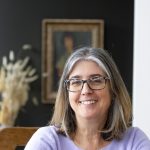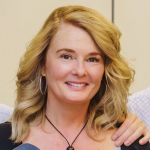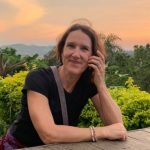 Annual Conference: Chicago, March 22–26
Annual Conference: Chicago, March 22–26
Workshop: Digital offline learning for remote communities – 10 years of field experience
The 60 million girls Foundation is hosting a CIES Workshop with four Canadian NGO partners. We will discuss the development of the Mobile Learning Lab along with practical information on the many ways this offline technology is being used to improve learning outcomes along with other issues of interest to our partner communities such as teacher training, health, and climate change.
Our partners will showcase their experiences, including challenges and benefits while highlighting the flexibility of the technology.
We will also demonstrate a new and interactive climate change game to enable children to explore different scenarios that are fun and locally relevant.
Description of Session: This Workshop aims to provide participants with information on how offline digital learning can benefit remote communities without access to the internet. We will demonstrate how the Mobile Learning Lab (MLL) can enable student access to interactive games, classroom materials, government tests/curricular resources, e-books, and specifically curated, local, culturally relevant, language-specific content. The MLL which comprises a Remote Area Community Hotspot for Education and Learning (RACHEL) server, user devices, and solar panels, is currently available to over 700,000 children in more than 20 countries in the Global South.
Access the official CIES program: https://convention2.allacademic.com/one/cies/cies25/

Workshop facilitators
60 million girls Foundation
Wanda Bedard is the President and Founder of the 60 million girls Foundation. She holds an MBA from HEC Montréal and a B. Com. from McGill University. She spent her career years as an entrepreneur in the sheet metal fabrication sector. After volunteering with UNICEF Canada, Wanda established the 60 million girls Foundation in 2006 to support girls’ education. Since its founding, the Foundation has invested close to $5 million supporting more than 40 projects in over 20 countries, directly benefitting over 100,000 children. View Wanda’s TEDx Montreal Women here.
Mission: 60 million girls is a volunteer-run public foundation dedicated to girls’ education. Wanda Bedard established the Foundation in 2006 to address a glaring need: 60 million primary-aged girls around the world were out of school, more than half the global total at the time. Today, while enrolment rates are higher, millions of children continue to lack access to a quality education. This is particularly true in times of crisis, such as climate-related emergencies, disease outbreaks and pandemics, or armed conflicts, when girls are often the first to be pulled out of school.
Core activities: Partner with Canadian NGOs to support at two or three education projects every year with grants of CAD $100,000, each. The foundation aims to reduce gender disparity and improve educational quality so that children who are in school can learn—and better tackle climate change. Projects take a holistic approach to problem solving, and most use the Mobile Learning Lab, an offline educational technology giving children, and their communities, access to better learning materials and teaching resources.
Geographic focus: In the last five years the foundation has funded projects in Ghana, Guatemala, Liberia, Nepal, Nicaragua, Sierra Leone, Mozambique, South Sudan, Uganda, and Zambia. View all projects here.
Presentation: The Mobile Learning Lab: Development, objectives and demonstration.
60 million girls developed the first iteration of the Mobile Learning Lab in 2014 with technical support from World Possible. Most recently, Wanda has been working with content developers to create an interactive climate change game for elementary-aged children.
For more information, visit their website: www.60milliongirls.org
Change for Children
Lorraine Swift is the Executive Director of Change for Children where she has worked since July 2002. Originally a Projects Coordinator, Lorraine leads the organization’s ambitious fundraising program and manages Change for Children’s communications and overseas development programs. Working to build and strengthen partnerships that evolve between communities across Canada and communities throughout the developing world, Lorraine has led the organization through a process of growth and specialization in themes such as technological innovation, sustainable resource management, gender equality and indigenous rights. Lorraine has a bachelor’s degree in Native Studies from the University of Alberta and previously held various positions with groups working in Alberta’s environmental movement.
Mission: Change for Children’s mission is to build civil society capacity in the global south and Canada to promote health, human rights, and create solutions to poverty through sustainable development.
Core activities: Change for Children works in solidarity and partnership with organizations in the global south on rights-based development projects that promote human dignity, healthy communities and global justice. Our priority areas of focus include education, clean water, climate change, Indigenous peoples, alternative energy, food sovereignty and health. We also work in Canada implementing an award-winning global education program in schools and through various overseas brigade and delegation programs.
Geographic focus: Change for Children works mainly in indigenous communities in Central America (Guatemala, Honduras, Nicaragua), but has also worked in many countries in South America and Africa throughout its 45+ year history.
Presentation: Digital Education at the “end of the earth.” Working in remote indigenous communities with no electric energy or cell signals, Change for Children has successfully delivered solar-powered MLL technology to dozens of classrooms and has used MOOCs (including local indigenous and mother-tongue content) for teacher pedagogy and climate change training.
For more information, visit their website: https://changeforchildren.org/
CAMFED – Campaign for Female Education
Jeffrey Nyandoro has served as CAMFED Zimbabwe Impact Manager for over six years and has gained extensive experience in monitoring and evaluation of development and humanitarian programs across several additional organizations in Zimbabwe. He holds a Bachelor of Business Administration in Management and Development Studies and received executive training in monitoring and evaluation from the University of Zimbabwe.
Mission: CAMFED is a pan-African, grassroots-led movement tackling poverty, inequality and injustice through girls’ education and women’s leadership in rural areas of Africa, where girls face acute disadvantage.
Core activities: Provision of a comprehensive financial and social support system targeted at the most marginalized girls to complete and succeed in school; support for young women to transition to secure livelihoods through business and tertiary education and join a powerful peer network of leaders; support for adoption of best practices serving marginalized students within national education systems at scale through government partnership.
Geographic focus: CAMFED works in partnership with communities, government schools, and education authorities in Ghana, Malawi, Tanzania, Zambia, and Zimbabwe.
Presentation: Empowering Girls with Digital STEM Education at Junior and Senior High Schools in Underserved Communities within Ghana. CAMFED Ghana utilized STEM focused Mobile Learning Labs to promote digital literacy and STEM learning for girls, demonstrating to government partners how marginalized students can be reached using affordable technology, even at schools lacking an internet connection.
For more information, visit their website: https://camfed.org/
CAUSE Canada
Wendy Fehr is the Executive Director at CAUSE Canada, an international relief and development organization working in rural areas in Central America and West Africa. Wendy’s career has focused on issues related to human rights, and forced and economic migration at both local and international levels. Her experience includes working in research and policy on education and gender-based violence with the Special Rapporteur on Violence Against Women at the United Nations Human Rights Commission, the United Nations High Commission for Refugees, and with the Human Security Report Project, at Simon Fraser University.
Mission: CAUSE Canada partners with rural communities in Central America and West Africa to empower people in extreme poverty with access to health, education, and livelihoods, believing everyone deserves dignity and equity.
Core activities: CAUSE Canada advances access to quality education for girls in rural and remote communities of West Africa and Central America by addressing systemic barriers such as early marriage, adolescent pregnancy, and gender-based violence. Over the past decade, CAUSE Canada has implemented initiatives that support vulnerable children and adolescents to stay in or return to school by utilizing offline technology to improve learning outcomes, ensure age-appropriate progression, and foster long-term empowerment through education.
Geographic focus: Guatemala, Honduras and Sierra Leone.
Presentation: Addressing the Educational Needs of Rural Sierra Leone: A Learning Journey. Since 2012, CAUSE Canada has utilized offline digital learning labs in Sierra Leone. This presentation examines the evolving and responsive use of these labs to enhance educational access and address the specific needs of vulnerable children and adolescents.
For more information, visit their website: https://www.cause.ca
CODE
Julie Donohue-Kpolugbo is CODE’s Literacy Education and Gender Specialist. Julie’s work is rooted in her passion for literacy and improving pedagogical practice. Over the last 20 years, Julie has worked in a variety of locations in North America, South America and Africa, most recently in the Canadian Arctic, serving in varying capacities including classroom teacher, instructional leader, program support teacher, coach, and literacy program consultant. In 2011, she won the VIF International Educator of the Year Award in Atlanta, Georgia. Julie holds a Master of Arts degree with a focus on elementary pedagogy as well as a certification in International Development with an emphasis on education program planning for sustainability.
Mission: CODE envisions a world where every young person can pursue education and realize their potential as a literate, empowered, self-reliant citizen through increased access to qualified educators and quality learning materials.
Core activities: Together with our partners, CODE works to ensure that every child, no matter where they live, can learn from well-trained teachers who have the confidence and know-how – and the access to quality, relevant reading and learning materials they need – to deliver the learning outcomes all children deserve.
Geographic focus: CODE currently has programs in Liberia, Sierra Leone, Ghana, Malawi, and Tanzania.
Presentation: Accelerating Advancement for Over-Age Girls in Liberia. CODE and its partner, the WE-CARE Foundation, have found Mobile Learning Labs helpful tools for building confidence, knowledge and accelerating advancement of vulnerable over-aged girls in Liberia.
For more information, visit their website: https://code.ngo/




